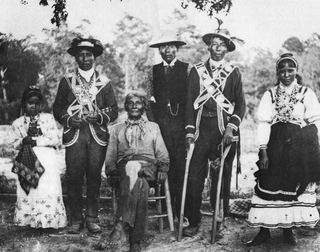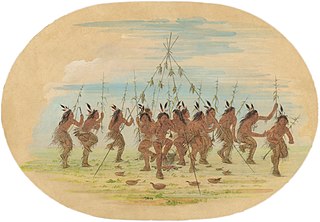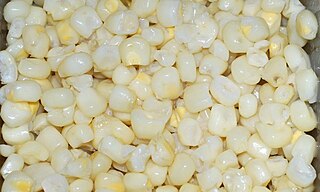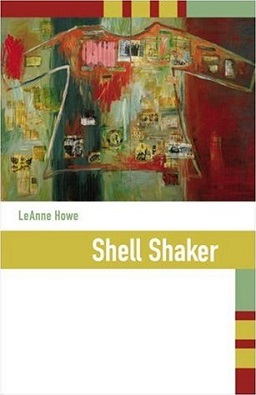 W
WThe culture of the Choctaw has greatly evolved over the centuries combining mostly European-American influences; however, interaction with Spain, France, and England greatly shaped it as well. The Choctaws, or Chahtas, are a Native American people originally from the Southeastern United States. They were known for their rapid incorporation of modernity, developing a written language, transitioning to yeoman farming methods, and having European-American and African-Americans lifestyles enforced in their society. The Choctaw culture has it roots in the Mississippian culture era of the mound builders.
 W
WChoctaw mythology is part of the culture of the Choctaw, a Native American tribe originally occupying a large territory in the present-day Southeastern United States: much of the states of Mississippi, Alabama, and Louisiana. In the 19th century, the Choctaw were known to European Americans as one of the "Five Civilized Tribes."
 W
WThe Choctaw language or Chahta Anumpa, traditionally spoken by the Native American Choctaw people of the southeastern United States, is a member of the Muskogean family. Chickasaw (Chikashshanompa), Choctaw and Houma form the Western branch of the Muskogean language family. Although Chickasaw is sometimes listed as a dialect of Choctaw, more extensive documentation of Chickasaw has shown that Choctaw and Chickasaw are best treated as separate but closely related languages.
 W
WFilé powder, also called gumbo filé, is a spicy herb made from the dried and ground leaves of the North American sassafras tree (Sassafras albidum).
 W
WThe Green Corn Ceremony (Busk) is an annual ceremony practiced among various Native American peoples associated with the beginning of the yearly corn harvest. Busk is a term given to the ceremony by white traders, the word being a corruption of the Creek word puskita (pusketv) for "a fast". These ceremonies have been documented ethnographically throughout the North American Eastern Woodlands and Southeastern tribes. Historically, it involved a first fruits rite in which the community would sacrifice the first of the green corn to ensure the rest of the crop would be successful. These Green Corn festivals were practiced widely throughout southern North America by many tribes evidenced in the Mississippian people and throughout the Mississippian Ideological Interaction Sphere. Green Corn festivals are still held today by many different Southeastern Woodland tribes. The Green Corn Ceremony typically occurs in late July–August, determined locally by the ripening of the corn crops. The ceremony is marked with dancing, feasting, fasting and religious observations.
 W
WPashofa, or pishofa, is a Chickasaw and Choctaw Indian soupy dish made from cracked white corn, also known as pearl hominy. The dish is one of the most important to the Chickasaw people and has been served at ceremonial and social events for centuries. Pashofa is also used in specific healing ceremonies.
 W
WShell Shaker is a novel by LeAnne Howe, a member of the Choctaw Nation of Oklahoma. The novel's plot revolves around two tales of murder involving Choctaw political leaders. Set over a 200-year period, it focuses on several generations of the Billy family who try to keep the peace. According to Howe, Shell Shaker is "a book about power, its misuse, and how a community responds. It's not for Indians only."
 W
WThe Stomp Dance is performed by various Eastern Woodland tribes and Native American communities, including the Muscogee, Yuchi, Cherokee, Chickasaw, Choctaw, Delaware, Miami, Caddo, Tuscarora, Ottawa, Quapaw, Peoria, Shawnee, Seminole, Natchez, and Seneca-Cayuga tribes. Stomp Dance communities are active in North Carolina, Oklahoma, Alabama, Mississippi, and Florida.